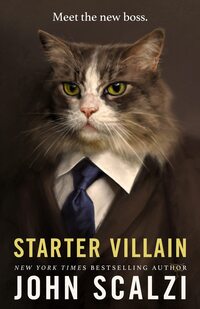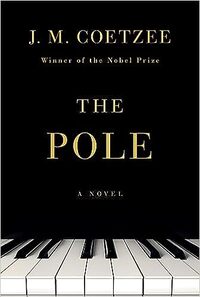Beyond the Door of No Return by David Diop
 Monday, September 18, 2023 at 6:28AM
Monday, September 18, 2023 at 6:28AM 
First published in France in 2021; published by Farrar, Straus and Giroux on September 19, 2023
Beyond the Door of No Return is a love story combined with an adventure story, set in the eighteenth century when adventures were still possible and when interracial love was often viewed as an abomination.
The story begins in the third person. Michel Adanson is old and nearing death. He made an academic career as a botanist. To the exclusion of everything else in his life, including marital happiness and a relationship with his daughter Aglaé, he has devoted himself to cataloging the various plants, shellfish, and animals he has encountered on his travels. His hope to publish a 20-volume encyclopedia of nature has been dashed, in part due to lack of interest among academic publishers.
About six months before his death, a broken femur inspires the revelation that over the course of time, Michel’s work will be forgotten, supplanted by “the eternal churn of human beings crashing over one another like waves” that would “bury him under the sands of his ancient science.” What suddenly seems important to Michel is “to figure in the memory of Aglaé as himself and not merely as some immaterial, ghostly scholar.”
To that end, Michel composes the story of an episode that shaped his life, a personal history that he has never shared. He hides the story in a desk, anticipating that Aglaé will care about him enough to decode his clue and find it. She does. The story helps her understand why her father’s last word was “Marak.”
Aglaé’s own story is that of a young woman who craved but did not receive her father’s attention. Her mother forced her into an unwise, short-lived marriage before her second husband, despite his absence of passion, gave her two children during another doomed marriage. Aglaé has come to believe that love and happiness exist only in romantic fiction. It is in this state of mind that Aglaé discovers the notebooks that contain her father’s story. I was disappointed that we do not learn more about Aglaé's reaction to the notebooks after she reads them. She is an important character until she disappears from view.
The novel’s greater focus is on the two stories that Aglaé discovers. One is Michel’s written account of his trip to Senegal when he was a young man in pursuit of botanical knowledge. Guided by Ndiak, son of the king of the Waalo, Michel hears about a revenant named Marak Sek who returned to Africa after being sold into slavery. It turns out that Marak is very much alive, not the walking dead. By coincidence or fate, Marak meets Michel after he falls ill.
The other story is Marak’s, told in the first person to Michel who recounts it in his notebooks. Marak survived two attempted rapes, escaped her confinement, was found and nurtured by a tribal healer, and has taken the healer’s place. While she does not live in her uncle’s village, she accepts the risk that he will find her and return her to the slave trader from whom she escaped. Her uncle’s reputation might be at risk if she is free to reveal his attempted incest.
Marak’s story is filled with harrowing moments. Enraptured by Marak’s beauty and fighting spirit, Michel falls in love with her. Perhaps he feels lust more than love. He denies that he is governed by desire, but the novel does little to explain what other qualities inspire Michel's love. In any event, their relationship propels the adventure story when Marak’s village turns out to be less safe than she had hoped.
Ndiak is the story’s philosopher. He talks about the “what if” moments in life that determine events. What if Michel had been taken to a different village when he fell ill? The chain of events that determined Michel’s and Marak’s lives would have been very different. Those events also change Ndiak’s life by inspiring him to understand the evil that is perpetrated when his fellow Africans sell each other into slavery.
By the end of his stay in Senegal, Michel discovers that European plants adapt nicely to Senegalese soil. Rather than enslaving Africans and exporting them to America, it would have been more profitable to pay Africans to grow sugar at home. Yet Michel knows that nobody wants to disturb the profits generated by the slave trade. Michel feels shame that he does not take an active role in clarifying the economics of slavery. He feels similar shame that, after returning to France, he did not confess his love of a Black woman. As a product of his times, Michel is not an exemplary character, but readers might appreciate his capacity for interracial love and his occasional spark of decency.
For reasons I won’t reveal, Michel’s life moves forward without Marak. The grief of loss cements his dedication to science as an alternative to heartache. He tries to forget but the novel suggests that the heart remembers what the mind chooses to ignore. Michel’s love story proves to be tragic in multiple ways, but an event near the end of his life proves that powerful memories may be suppressed but never forgotten. A work of art, a piece of music, can have “the power to reveal to ourselves our secret humanity.”
The final chapter makes clear that even if the significance of our lives and memories might be lost on others, they are nevertheless important. Michel’s story might be of no consequence to anyone but himself and perhaps Aglaé, yet the novel reminds us that listening to stories of others helps us understand our own lives. Integrating those stories into our own memories and sharing them contributes to a collective understanding of humanity. David Diop makes those points with subtlety in a story that is always interesting, sometimes exciting, and occasionally moving.
RECOMMENDED
 TChris |
TChris |  Post a Comment |
Post a Comment |  David Diop,
David Diop,  France,
France,  Senegal in
Senegal in  General Fiction
General Fiction 


